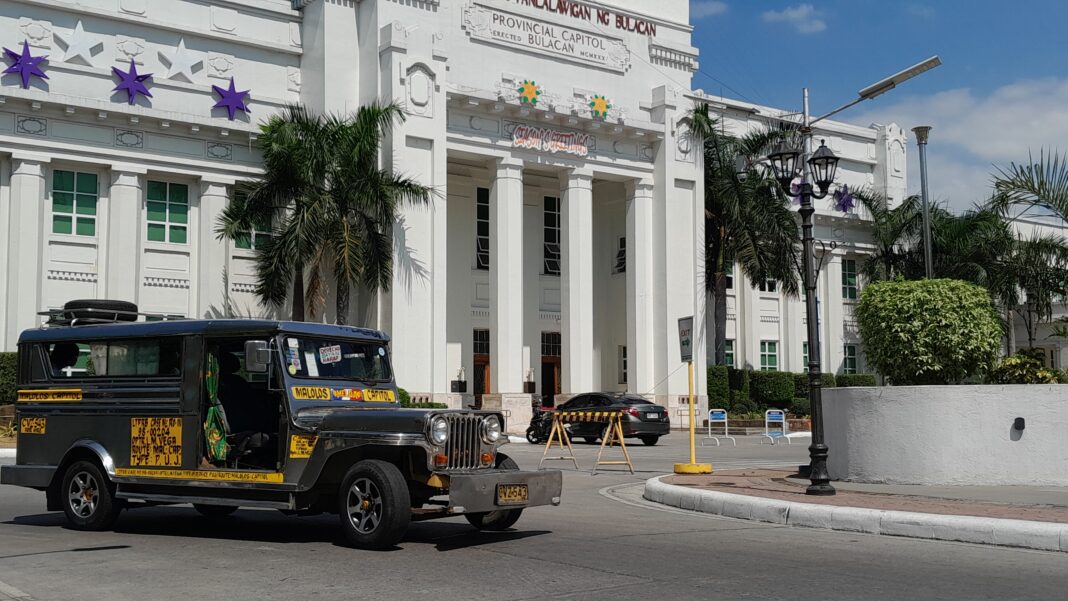
The Leaders Forum is seeking the immediate reevaluation and indefinite suspension of the Public Utility Vehicle Modernization Program (PUVMP), saying phasing out jeepneys will render thousands of workers jobless, compound hardships for numerous commuters, and ignite a domino effect on business and the economy.
In a recent official statement, the Leaders Forum, a group representing both workers and employers, appealed for “an urgent review of the PUVMP in order to address its legal, financial and human rights infirmities; a suspension of the deadline for consolidation for an indefinite period of time; and advocate for the creation of an affordable, sustainable and carbon-neutral mass transport system.”
The group added: “We believe that this program, which includes the phase-out of jeepneys—a cultural icon in the Philippines—will impact the livelihoods of countless jeepney operators, drivers, and their families.”
The riding public, mostly workers, will also face significant inconveniences, it added. “The supply of modern jeeps is insufficient to accommodate hundreds of thousands of commuters, even as 38,000 will lose their jobs, as estimated by the LTFRB.”
The business and labor association underscored the lack of other viable options available to the riding public as the PUVMP is being undertaken.
“The phasing out of jeepneys without providing an affordable alternative for working-class commuters could create a domino effect on domestic businesses and the economy, potentially raising the cost of living and feeding into inflation,” it said.
The statement was signed by Leaders Forum officials, namely, Edgardo Lacson, chair of the Employers Confederation of the Philippines; Jose Sonny Matula, national president of the Federation of Free Workers; Enunina Mangio, president of the Philippine Chamber of Commerce and Industry; Sergio Ortiz-Luis, Jr., president of the Philippine Exporters Confederation, Inc.; Daniel Edralin, chair of the Sentro ng mga Nagkakaisa at Progresibong Manggagawa; and Raymond Democrito Mendoza, president of the Trade Union Congress of the Philippines.
The industry leaders raised a number of issues they insisted were overlooked in the rush to implement the modernization program, including lack of public consultation. “Critically, jeepney operators and drivers were not consulted about the design of modern jeeps or alternative vehicles,” they said.
Since the PUVMP is a significant national policy, it should have undergone social dialogue beforehand for all stakeholders, including transport workers, commuters, and industry representatives, to contribute their insights and objections before the measure was passed so as to safeguard public transportation as an essential public service, the statement said.
There has also been no compensation provided for the surrender of existing units. Importation of a modern jeepney could cost from P2.5 million to P3 million, which “is prohibitively expensive, making ownership unfeasible for many, even with amortization options,” the statement continued.
“Additionally, the forced consolidation of franchises into cooperatives or corporations—often without genuine consent or equitable participation—is against the spirit of cooperativism and likely to lead to significant collective-action problems,” it said.
The modernization program also seemingly contradicts the United Nations’ Sustainable Development Goal that “no one should be left behind” when making economic or industrial changes in response to the climate crisis.
As such, comprehensive social protection measures should be established before implementing any modernization project, the group said.
“This system should include support for local jeepney manufacturers to design and produce vehicles that are affordable, safe, and environmentally friendly. The government must also back research and development efforts and provide subsidies to ensure that amortization terms for operators and drivers—including those who have already consolidated and fought for elements of just transition into the PUVMP—are affordable and potentially profitable,” it said.
Opportunities for skilling, reskilling, and upskilling in the transport and related industries should be offered as well.
The organizations further argued that the phase-out needs to be complemented by the creation of an affordable, sustainable and carbon-neutral mass transport system.
In line with this, the PUVMP could actually present an opportunity to spur local jeepney manufacturing and create thousands of jobs.
“Unfortunately, the LTO-LTFRB-DOTr group appears to overlook this potential to bolster our domestic automotive industry. Our local jeepney producers currently lack the capacity to produce or assemble units quickly,” the group decried, citing estimates indicating that only 5,000 units per year at most can be produced locally.
Noting it would take years before Filipino manufacturers can supply enough electric jeepneys to meet demand, the Leaders Forum pressed for increased government support to build the local jeepney industry’s production capacity and for a more realistic timetable for the rollout.






